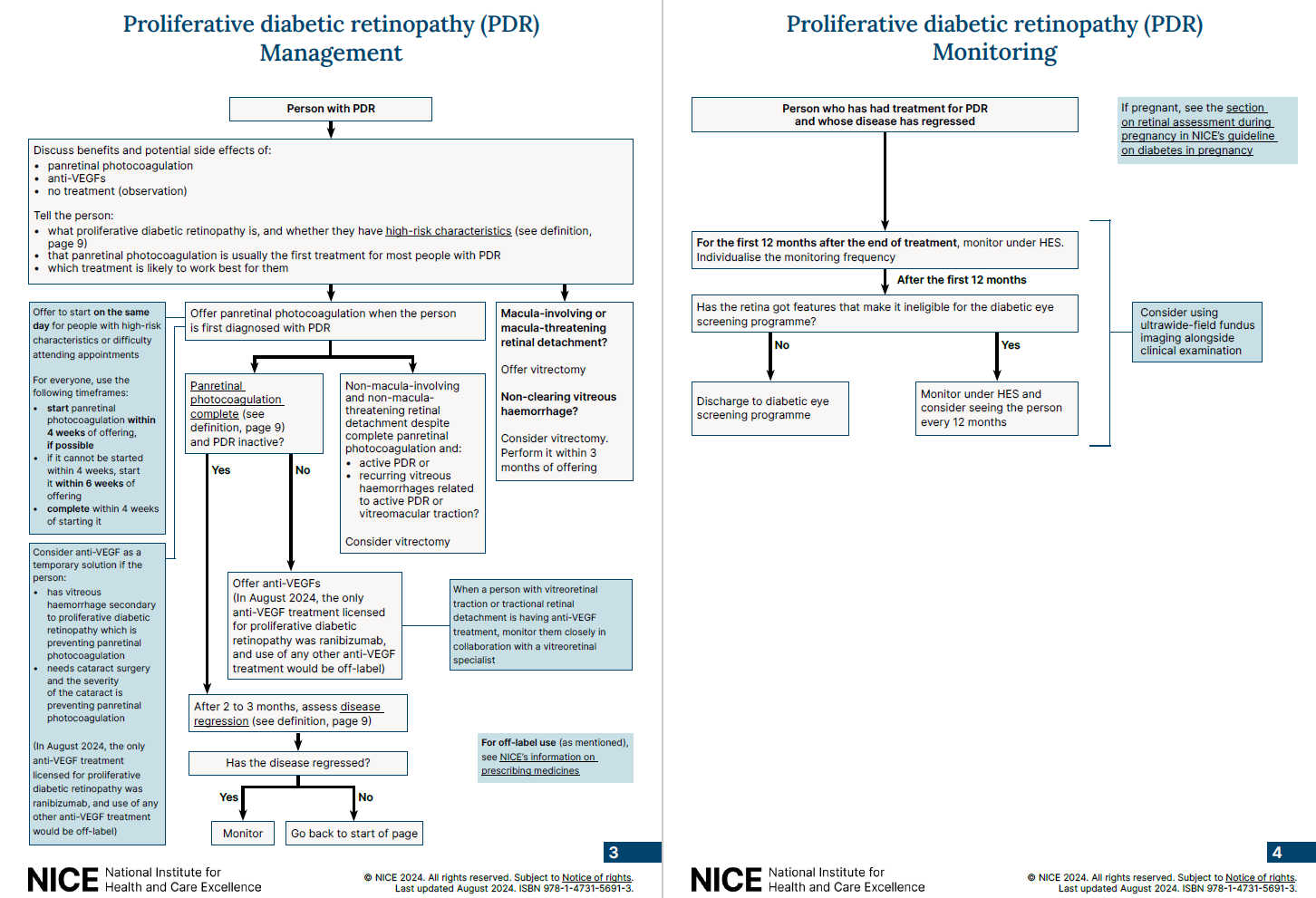Overview
This guideline covers managing and monitoring diabetic retinopathy in people under the care of hospital eye services. This includes non-proliferative and proliferative diabetic retinopathy, and diabetic macular oedema.
The guideline does not include areas covered by the NHS diabetic eye screening programme, for example, routine annual screening.
Last reviewed: 13 August 2024
Next review: This guidance will be reviewed if there is new evidence that is likely to change the recommendations.
Recommendations
This guideline includes recommendations on:
- managing diabetes to support best eye care
- cataract surgery for people with diabetic retinopathy
- non-proliferative diabetic retinopathy
- proliferative diabetic retinopathy
- diabetic macular oedema.
See the 9-page visual summary on managing and monitoring diabetic retinopathy.
Who is it for?
- Healthcare professionals in secondary care
- Practitioners in ophthalmology and optometry services
- People using these services, their families and carers.
Guideline development process
How we develop NICE guidelines
Your responsibility
The recommendations in this guideline represent the view of NICE, arrived at after careful consideration of the evidence available. When exercising their judgement, professionals and practitioners are expected to take this guideline fully into account, alongside the individual needs, preferences and values of their patients or the people using their service. It is not mandatory to apply the recommendations, and the guideline does not override the responsibility to make decisions appropriate to the circumstances of the individual, in consultation with them and their families and carers or guardian.
All problems (adverse events) related to a medicine or medical device used for treatment or in a procedure should be reported to the Medicines and Healthcare products Regulatory Agency using the Yellow Card Scheme.
Local commissioners and providers of healthcare have a responsibility to enable the guideline to be applied when individual professionals and people using services wish to use it. They should do so in the context of local and national priorities for funding and developing services, and in light of their duties to have due regard to the need to eliminate unlawful discrimination, to advance equality of opportunity and to reduce health inequalities. Nothing in this guideline should be interpreted in a way that would be inconsistent with complying with those duties.
Commissioners and providers have a responsibility to promote an environmentally sustainable health and care system and should assess and reduce the environmental impact of implementing NICE recommendations wherever possible.
